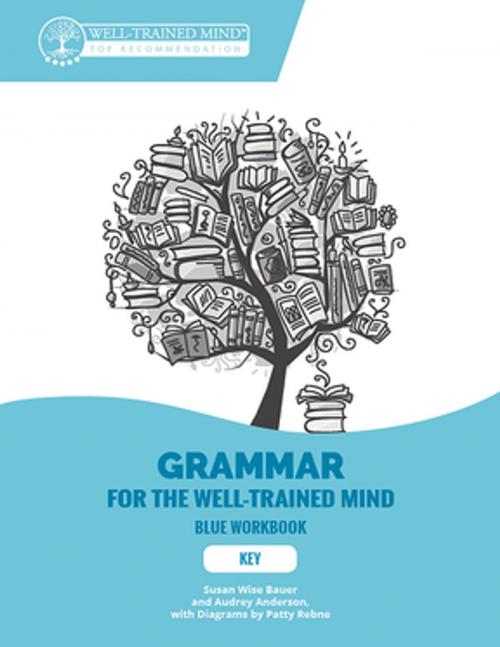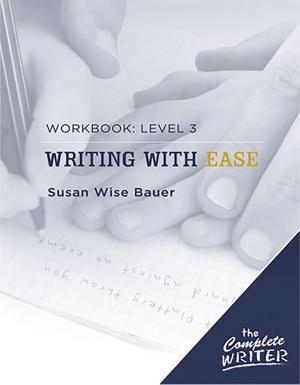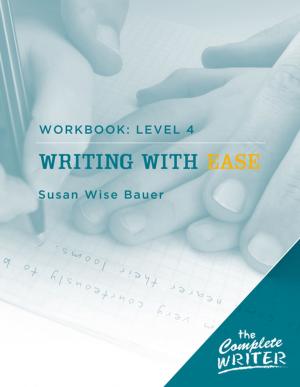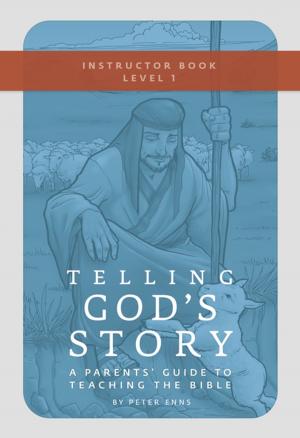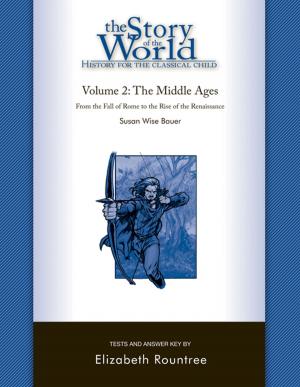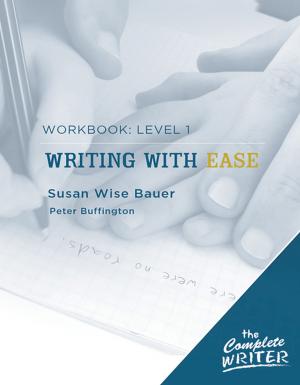Grammar for the Well-Trained Mind: Key to Blue Workbook: A Complete Course for Young Writers, Aspiring Rhetoricians, and Anyone Else Who Needs to Understand How English Works (Grammar for the Well-Trained Mind)
Kids, Fran&, Beautiful and Interesting, Language Arts, Grammar, Nonfiction, Reference & Language, Education & Teaching, Teaching, Language Experience Approach| Author: | Susan Wise Bauer | ISBN: | 9781945841347 |
| Publisher: | The Well-Trained Mind Press | Publication: | October 15, 2019 |
| Imprint: | The Well-Trained Mind Press | Language: | English |
| Author: | Susan Wise Bauer |
| ISBN: | 9781945841347 |
| Publisher: | The Well-Trained Mind Press |
| Publication: | October 15, 2019 |
| Imprint: | The Well-Trained Mind Press |
| Language: | English |
The Key to the Blue Workbook gives clear, thoroughly-explained answers to all exercises in the Blue Workbook, one of four workbooks in the Grammar for the Well-Trained Mind series, providing detailed, well-designed exercises in the correct use of English grammar.
The Key to the Blue Workbook gives clear, thoroughly-explained answers to all exercises in the Blue Workbook, one of four non-sequential books in the Grammar for the Well-Trained Mind series, providing detailed, well-designed exercises in the correct use of English grammar.
The Key, along with the accompanying Blue Workbook and the Core Instructor Text, make up Grammar for the Well-Trained Mind: a complete course that takes students from basic definitions (“A noun is the name of a person, place, thing, or idea”) through advanced sentence structure and analysis?all the grammar skills needed to write and speak with eloquence and confidence.
This innovative program combines the three essential elements of language learning: understanding and memorizing rules (prescriptive teaching), repeated exposure to examples of how those rules are used (descriptive instruction), and practice using those rules in exercises and in writing (practical experience).
Each year, parents and teachers go through the dialogue, rules, and examples in the Core Instructor Text; students follow along in the Workbook. This repetition solidifies the concepts, definitions, and examples in the student’s mind.
There are four Workbooks, one for each year. Each Workbook contains the same rules and examples?but four completely different sets of exercises and assignments, allowing students to develop a wide-ranging knowledge of how the rules and examples are put to use in writing.
Each Key to the Workbooks provides not only answers, but also explanations for the parent/instructor, and guidance as to when the answers might be ambiguous (as, in English, they often are).
All of the rules covered, along with the repeated examples for each, are assembled for ongoing reference in the Comprehensive Handbook of Rules (soon to be renamed as The Grammar Guidebook). Every step of the sentence diagramming process is gathered for reference, along with illustrations, in The Diagramming Dictionary. These will become the student’s indispensable guide to writing through high school, into college and beyond.
Step-by-step instruction takes students from the most basic concepts through advanced grammatical concepts such as modal and hortative verbs and multiple functions of noun clauses.
Extensive diagramming exercises reinforce the rules and help technical and visual learners to understand and use the English language effectively. Each step of the diagramming process is illustrated and thoroughly explained to the student.
Text for examples and exercises are drawn from great works of literature, as well as from well-written nonfiction texts in science, mathematics, and the social sciences.
Regular review is built into each year of work.
The Key accompanies one of four non-sequential workbooks, each containing new exercises that allow students to practice and apply the grammar principles under study.
The Key to the Blue Workbook gives clear, thoroughly-explained answers to all exercises in the Blue Workbook, one of four workbooks in the Grammar for the Well-Trained Mind series, providing detailed, well-designed exercises in the correct use of English grammar.
The Key to the Blue Workbook gives clear, thoroughly-explained answers to all exercises in the Blue Workbook, one of four non-sequential books in the Grammar for the Well-Trained Mind series, providing detailed, well-designed exercises in the correct use of English grammar.
The Key, along with the accompanying Blue Workbook and the Core Instructor Text, make up Grammar for the Well-Trained Mind: a complete course that takes students from basic definitions (“A noun is the name of a person, place, thing, or idea”) through advanced sentence structure and analysis?all the grammar skills needed to write and speak with eloquence and confidence.
This innovative program combines the three essential elements of language learning: understanding and memorizing rules (prescriptive teaching), repeated exposure to examples of how those rules are used (descriptive instruction), and practice using those rules in exercises and in writing (practical experience).
Each year, parents and teachers go through the dialogue, rules, and examples in the Core Instructor Text; students follow along in the Workbook. This repetition solidifies the concepts, definitions, and examples in the student’s mind.
There are four Workbooks, one for each year. Each Workbook contains the same rules and examples?but four completely different sets of exercises and assignments, allowing students to develop a wide-ranging knowledge of how the rules and examples are put to use in writing.
Each Key to the Workbooks provides not only answers, but also explanations for the parent/instructor, and guidance as to when the answers might be ambiguous (as, in English, they often are).
All of the rules covered, along with the repeated examples for each, are assembled for ongoing reference in the Comprehensive Handbook of Rules (soon to be renamed as The Grammar Guidebook). Every step of the sentence diagramming process is gathered for reference, along with illustrations, in The Diagramming Dictionary. These will become the student’s indispensable guide to writing through high school, into college and beyond.
Step-by-step instruction takes students from the most basic concepts through advanced grammatical concepts such as modal and hortative verbs and multiple functions of noun clauses.
Extensive diagramming exercises reinforce the rules and help technical and visual learners to understand and use the English language effectively. Each step of the diagramming process is illustrated and thoroughly explained to the student.
Text for examples and exercises are drawn from great works of literature, as well as from well-written nonfiction texts in science, mathematics, and the social sciences.
Regular review is built into each year of work.
The Key accompanies one of four non-sequential workbooks, each containing new exercises that allow students to practice and apply the grammar principles under study.
